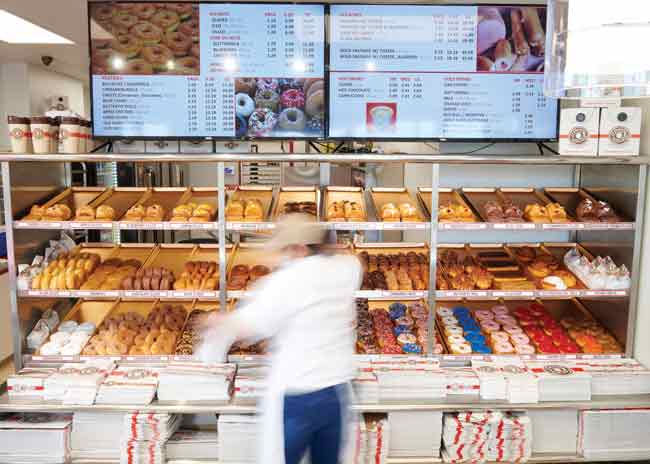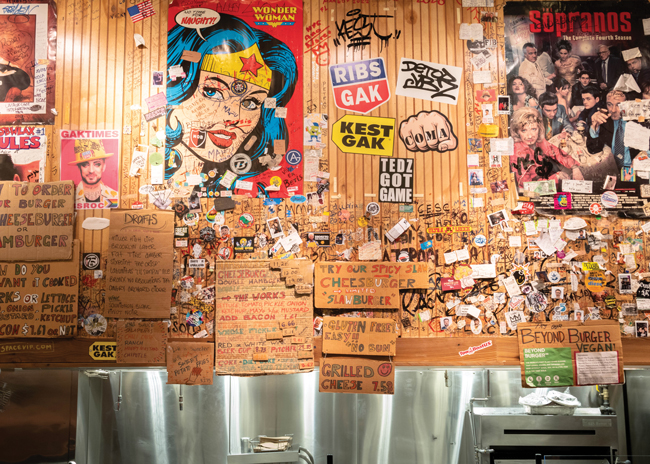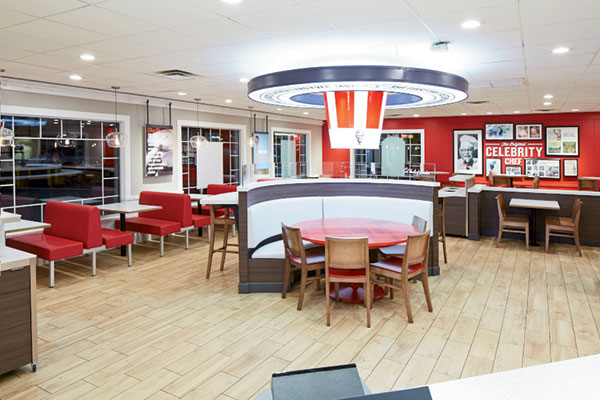According to Technavio, the U.S. doughnut market is estimated to grow at a compound annual growth rate of 2.65% between 2022 and 2027. Popularized decades ago by Dunkin’, chains are growing by bringing excitement to this category, with sleek store designs, quality beverage programs, unusual product offerings and ambitious expansion plans.
Concepts like Top Pot Doughnuts & Coffee in Seattle and Saint Honoré Doughnuts & Beignets in Las Vegas — whose artisanal doughnuts in flavors like creme brulee retail for $6 each, are driving the ubiquity of these circular sugary delights across America.
 Shipley Do-Nuts is planning to double the size of its footprint to 650 stores in the next five years. Image courtesy of Shipley Do-Nuts
Shipley Do-Nuts is planning to double the size of its footprint to 650 stores in the next five years. Image courtesy of Shipley Do-Nuts
Shipley Do-Nuts
Houston, Texas
Shipley Do-Nuts has been selling doughnuts to Americans since 1936. They have 341 stores with a goal of opening 25 to 30 more this year, and likely 40 to 50 per year following that. “In five years, we’d like to double the size of our company to 650 shops,” says Mike Stout, senior director, franchise development.
In 2021 Peak Rock Capital acquired Shipley Do-Nuts, which spurred growth plans. The chain is 97% franchised, with 12 corporate stores, and future growth will be mostly through franchises.
“Three generations of the family ran the company for 80 years and then they decided to exit the business but wanted to find someone who could keep it intact and grow it beyond the Texas market,” says Stout.
While most Shipley stores are in Texas, Peak Rock is looking to change that. “We’re really focused on the Southeast markets, getting saturation there and developing a stronger supply chain. Probably three to four years from now I can see us moving into the Midwest,” says Stout.
Shipley is targeting franchisees who want to open at least three stores, but doesn’t discount single-unit operators. “Getting to scale in a market really takes more than one store,” Stout says, though he admits that smaller markets are well suited to a franchisee who only wants a single location.
The most successful Shipley franchisees “are those who are engaged in the business daily and are very involved as an owner-operator,” says Stout. “Passion plays a part of it, being involved in the community, knowing how to market, and having business ownership skills and foodservice experience bodes well.”
The concept works in both urban and suburban markets but, says Stout, works best if there’s a population of at least 2,000 within in a 1-mile radius. “We like to have a drive-thru if possible; our volumes are higher,” he says, but they’re just not available in some markets, especially urban ones.
Online ordering and drive-thru make up about 75% of business, says Stout. Because of that, the company is launching its Shipley Lite design next year, which will operate out of around 1,000 square feet, about half the size of traditional locations.
“We’re really excited about this because it will open the door for us to pursue more ground-up opportunities while using less land,” Stout notes. “We see it as an efficiency model — reducing labor, utilities and rent,” he adds. “There are significant savings with this model.”
The Lite stores will mostly open in markets where there’s a traditional Shipley Do-Nuts because the smaller stores will rely on larger stores for some storage.



